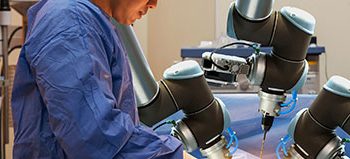The growth of the global Neonatal Care Equipment Market can be attributed to factors such as hospital budget cuts, a large inventory of used or old medical devises, rising demand for capital-intensive diagnostic imaging equipment, e-commerce platform enhancing the ease of purchase of refurbished medical equipment, growing preference for eco-friendly products, an increasing number of diagnostic centers & hospitals, and the growing opportunities in emerging economies.
According MarketsandMarkets Research Report – [206 Pages Report] The fetal and neonatal care equipment market is projected to grow from an estimated USD 6.4 billion in 2018 to USD 8.4 billion by 2023, at a CAGR of 5.7% during the forecast period. Growth in the fetal and market is mainly driven by the rise in number of preterm and low-weights birth infants, growing number of NICU admissions, and increased awareness of neonatal and fetal care across developing nations.
Download PDF Brochure: https://www.marketsandmarkets.com/pdfdownloadNew.asp?id=412
Analysis of the developments in the fetal and neonatal care equipment market from 2015 to 2018 shows that new product launches, agreements, partnerships, collaborations, geographic expansions, and mergers & acquisitions are the most widely adopted growth strategies by players in the market. Players adopted these strategies to strengthen their market positions.
GE Healthcare held the leadership position in the overall fetal and neonatal care equipment, which can be attributed to its domination in almost all market segments. The company has a broad product portfolio which includes products under various categories such fetal monitors, Ultrasound, infant warmers, phototherapy equipment, and incubators, among others. In order to sustain its leadership position in the fetal and neonatal care equipment market, the company focuses on new product launches and expansions and inorganic growth strategies such as collaborations and agreements. In 2018, the company launched ultrasound product, namely Versana Essential and in 2015 the new Vscan Access (a portable ultrasound system) in certain countries of Africa and Southeast Asia. The company also acquired Monica Healthcare (UK), a monitoring technology company that offers advanced fetal monitoring devices.
Philips Healthcare held leadership position in the fetal and neonatal care equipment market, due to its broad product portfolio and strong market presence in more than 100 countries, including mature and emerging markets. The company focuses on agreements, partnerships, collaborations and new product launch growth strategies to increase its market share. In 2018, the company launched Avalon beltless solution for continuous maternal and fetal monitoring and eL18-4 transducer in 2017 which are available for its EPIQ 7 and 5 and Affiniti 70 ultrasound systems. Furthermore, in 2018 Philips and Hologic, Inc. entered into an agreement to provide integrated imaging solutions for women’s health.
Request for Sample Pages: https://www.marketsandmarkets.com/requestsampleNew.asp?id=412
Recent developments:
- In 2018, GE Healthcare (UK) launched Versana Essential
- In 2018, Philips launched Avalon beltless solution for continuous maternal and fetal monitoring
- In 2017, Philips received US FDA approval for its new eL18-4 transducer. This latest solution is available on its EPIQ 7 and 5 and Affiniti 70 ultrasound systems
- In 2016, Drägerwerk AG & Co. KGaA closed its facility Pittsburgh in July 2016 and opened its office in Houston.



